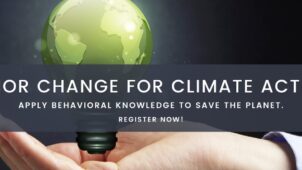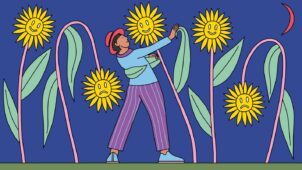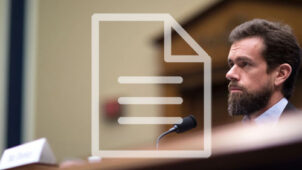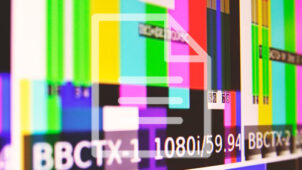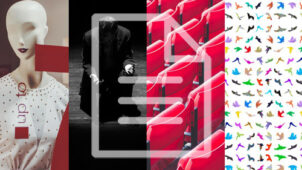In the News
-
Behavior Change for Climate Action Challenge 2022
The Center for Behavior and Climate (CBC) is seeking applications for our Behavior Change for Climate Action Challenge 2022. The application is just 3 pages. To request application, email [email protected]. Climate areas of interest include but are not limited to: energy conservation, public action (e.g., policy support, volunteering, protesting, voting for politicians supporting climate action), food choices, tree planting, soil restoration, blue carbon restoration, renewable energy, and electrification of cars, trucks, buses.
Applicable evidence-based behavior change include, but are not limited to, the following: Make it easy, Nudges/Choice Architecture; Prompts; Justification; Instructions; Rewards; Feedback; Social Modeling (social norms, block leaders, community interventions); Cognitive Dissonance; Commitments; Setting Goals; Games; and Tools to Counter Cognitive Biases.
CBC will select 3 nonprofits for this challenge. Each of the selected nonprofits will receive:
1) free technical assistance to learn how to apply behavior change for climate action from the CBC (workshop and continued technical support);
2) $4650 in funds to apply behavior change to an existing or new climate action project.
https://climate.bds.com/behavior-change-for-climate-action-challenge: Applications accepted til Nov. 1, 2022 -
Thinking More Deeply About Positive Thinking
People like feeling in control of where their lives are headed, and the pandemic has made it especially difficult to feel this way. There’s little we can do to change the harsh realities of the current crisis, but professor Arthur C. Brooks describes how we can adopt a more positive mindset to better cope with these realities in The Atlantic. Is positive thinking always the answer to our problems, or can it sometimes lead us astray? In SPSP’s Character and Context blog, professor Trysh Travis describes some of the less-known perils of positive thinking-- for example, someone who has uncritically internalized a belief in thinking positively may feel it’s their own fault if they remain marginalized from systemic racism. Finally, Annie Duke weighs in on the power of negative thinking.
-
The Psychological Burden of Remote Learning
The pandemic has taken education out of its social context, and schools haven’t fully accounted for the psychological burden this imposes on students, writes psychologist Tess Wilkinson-Ryan for The Atlantic. Remote learning also exacerbates racial and economic gaps in achievement, reports the LA Times.
-
Twitter’s Proposed Solution to Digital Political Polarization
In recent Congressional testimony, Twitter CEO Jack Dorsey reviewed a “health” initiative for users, including how Twitter could serve as a space to reconcile political opposition. Yet Sociologist Christopher Bail (Duke) cautions against policy action to support Dorsey’s efforts. Bail’s work shows that Twitter may actually lead to further polarization.
-
Decision-Making as a Required Course in School?
Behavioral science probably isn’t what comes to mind when you think of grade school curricula, but writer Steven Johnson is trying to change that. This week, Johnson makes the case for integrating decision-making courses into lower grades. Also, in the Behavioral Scientist, Tom Wein shows us how we can integrate behavioral science into “edutainment” to benefit people at different ages, from kids in school to adults making decisions for later in life.
-
RCTs, Workplace Wellness, and Drug Overprescription
This week in health and behavioral science, Aaron Caroll defends the randomized controlled trial in the The Upshot by NYT, specifically using examples of workplace wellness studies.
Also this week, The GSA’s Office of Evaluation Sciences shares promising results from two randomized studies that tested peer comparison letters to reduce overprescribing of drugs. Meanwhile in Aeon, a medical resident poses the question: will medicine ever recover from the perverse economics of drugs?
-
Why the Most Important Idea in Behavioral Decision-Making Is a Fallacy
David Gal (UI-Chicago) argues that loss aversion is not a bigger motivator than achieving gains in the Scientific American. Beyond the fact that “price increases do not impact consumer behavior more than price decreases,” for example, we must “critically assess accepted beliefs and to be wary of institutional consensus in science and otherwise.”
-
Looking Back to Look Forward
As the beginning of the academic semesters grow near, reflect back on the year with our partner platform the Behavioral Scientist on their most popular stories as well as the editorial board’s summer reading list. Also for our readers in education, consider rethinking the movement toward screen-based learning.
-
What Helps Disenfranchised People?
In Project Syndicate, Peter Singer offers his perspective on whether charity for the poor is futile, in response to a recent essay by leading economists that criticized aid to the poor for failing to address poverty's root causes. Also, Sheryl Sandberg’s “Lean In” mantra may inadvertently be hurting women.
-
Designing to Avoid “Ordinary Unethicality”
“There will always be bad people intent on mischief,” says Yuval Feldman this week in the Behavioral Scientist. BSPA’s Dave Nussbaum speaks with Feldman about his new book, The Law of Good People: Challenging States’ Ability to Regulate Human Behavior. “The lesson to legal policymaking from behavioral ethics is to thoughtfully design environments, rules, and regulations in ways that don’t invite unethical behavior from ordinary people.”
Also this week, economist Erez Yoeli argues that altruistic behaviors are shaped largely by reputational motives. “No longer do identity appeals, descriptive norms, and public-good frames seem so different,” says Yoeli, “they are all examples of interventions that communicate information about the reputational impact of giving."
-
Behavioral Economics from Nuts to ‘Nudges’
In case you didn’t hear his Nobel lecture, Richard Thaler offers a written version in the Chicago Booth Review. Thaler explains in a footnote: “I should say that this article is not a transcription of the lecture I delivered in Stockholm during Nobel week. There are two reasons for this. One is simple procrastination. The talk was on December 9, 2017. The written version was not ‘due’ until January 31, 2018, which is surely an aspiration rather than a real deadline. Why do something now that you can put off until later? The other reason is more substantive. Talks and articles are different media. Readers interested in seeing the actual lecture can find it at Nobelprize.org.”
-
Citywide Behavioral Science Experiments Are Paying Off
Fast Company covered ideas42’s nudge experiments in cities like New York and Chicago this week. Also check out this article about how the city government of Scottsdale, Arizona scaled up a testing-based approach initially spearheaded by the Behavioral Insights Team.
Thinking of Submitting a Paper? Ask the Editors!
Want to submit a paper to BSP but not sure whether you have the right angle?
BSP has a new 'ask the editors' feature available for potential authors. Simply click below to send us an email, and we will respond within 72 hours.
Ask the Editors